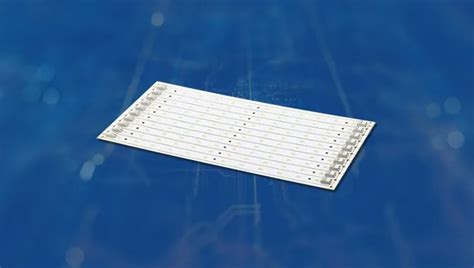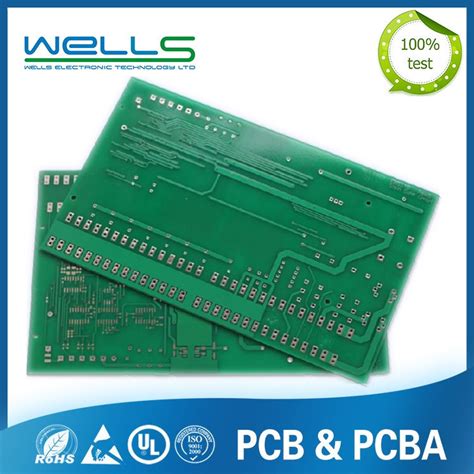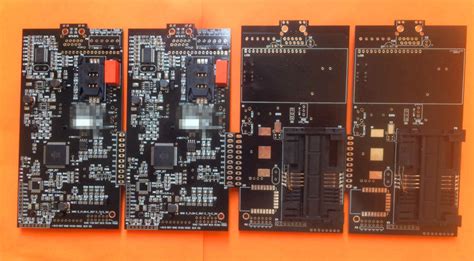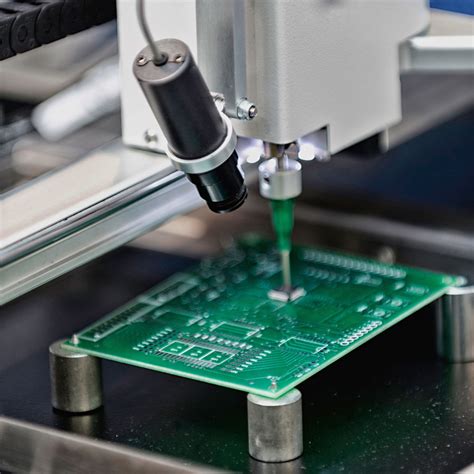Driving Innovation: Top Automotive PCB Manufacturers to Know
Key Takeaways
As the automotive industry continues to evolve, the role of automotive PCBs (Printed Circuit Boards) becomes increasingly pivotal. The future of vehicles relies not only on traditional components but also on advanced pcb assembly techniques that enhance capabilities and performance. Leading manufacturers in this sector are at the forefront of innovation, employing cutting-edge technologies to ensure their products meet stringent quality standards. Through dedicated pcba processes, these companies contribute significantly to vehicle performance and safety. By integrating complex functionalities into compact formats, they enable enhancements in features such as autonomous navigation, electric powertrains, and infotainment systems. Furthermore, as regulatory frameworks become more demanding, these manufacturers prioritize certifications that validate their commitment to quality and safety. Overall, the contributions of top automotive PCB manufacturers are shaping not only current technologies but also setting the stage for future advancements in automotive design and production.
Introduction to Automotive PCBs: The Backbone of Modern Vehicles
In today’s rapidly advancing automotive industry, automotive PCBs (Printed Circuit Boards) have emerged as a crucial element that underpins the functionality and reliability of modern vehicles. As vehicles evolve to incorporate smart technologies, advanced driver-assistance systems, and electric powertrains, the importance of pcb assembly becomes increasingly pronounced. Automotive PCBs serve not only in essential systems such as engine control units and infotainment systems but also in safety-critical applications like airbag systems and anti-lock braking systems. The reliability and performance standards required from these components are exceptionally high, necessitating stringent quality assurance processes during pcba (Printed Circuit Board Assembly) manufacturing. Moreover, automotive PCBs play a vital role in reducing the overall weight of vehicles, enhancing energy efficiency, and supporting innovative features that improve user experience. As manufacturers strive to push the boundaries of technology while adhering to rigorous standards, it is clear that automotive PCBs represent an indispensable component in driving the future of mobility forward.
Key Players in Automotive PCB Manufacturing
The automotive industry relies heavily on PCB assembly to enhance the functionality and efficiency of modern vehicles. Leading automotive PCB manufacturers are at the forefront of innovation, providing advanced solutions that meet stringent quality standards. Notable players in this sector include companies like Jabil, Flextronics, and Sanmina, which are recognized for their expertise in creating PCBA solutions tailored to automotive applications.
These manufacturers are not only focused on high-quality production but also invest significantly in research and development. By leveraging innovative technologies, they are pioneering advancements such as multilayer PCBs and flexible circuits that optimize space and improve performance within vehicles. The competition between these leading companies fosters a robust environment for technological advancements, ensuring that automotive electronics remain safe, reliable, and efficient.
Below is a comparative overview of some key players in the automotive PCB manufacturing sector:
| Manufacturer | Key Technologies | Certifications | Notable Contributions |
|---|---|---|---|
| Jabil | Multilayer PCBs, Flexible Circuits | ISO/TS 16949 | High-performance applications in EVs |
| Flextronics | Advanced RF Designs, AI-driven Quality Control | IATF 16949 | Innovations in connectivity solutions |
| Sanmina | High-density Interconnects | IPC-A-600 | Enhanced safety features and resilience |
As the automotive landscape evolves with the integration of smart technologies, these manufacturers play a critical role in ensuring that vehicles are equipped with cutting-edge electronics through their focused efforts on quality and innovation within PCBA processes. By continuously enhancing their capabilities, these key players contribute significantly to the future of automotive safety and performance.
Innovative Technologies Transforming Automotive PCBs
The automotive industry is witnessing a remarkable transformation driven by innovative technologies in the realm of Printed Circuit Boards (PCBs). These advancements play a crucial role in enhancing the functionality and reliability of vehicles. PCB assembly processes are evolving with the integration of advanced materials and manufacturing techniques, allowing for lighter and more compact designs that optimize space within modern vehicles. Smart technology has entered the scene, enabling features such as real-time diagnostics and connectivity, which are essential for developing electric vehicles and advanced driver-assistance systems (ADAS).
One noteworthy trend is the use of flexible PCBs, which allow for more versatile designs that can fit into unconventional spaces. These flexible boards are instrumental for applications involving sensors and display technologies that require mobility without compromising performance. Additionally, automated production techniques are being adopted by leading automotive PCB manufacturers to improve efficiency and accuracy during PCBA processes, leading to significantly lower reject rates.
» “Embrace the change,” say industry experts when discussing these transformative technologies. “Being at the forefront of innovation is vital for survival in today’s competitive landscape.” As manufacturers continue to push boundaries, we can expect developments in functionality that not only meet consumer demands but also ensure enhanced safety and performance in vehicles. The integration of new materials such as high-frequency laminates further paves the way for improved electrical performance in high-speed applications.
In summary, as innovative technologies continue to reshape automotive PCBs, they offer opportunities to revolutionize vehicle design and functionality, creating not just more efficient manufacturing processes but also safer driving experiences on the road.
Quality Standards and Certifications in Automotive PCB Production
In the automotive industry, quality standards and certifications are paramount to ensure the reliability and safety of vehicles. Automotive PCB assembly (PCBA) processes are held to stringent regulations, such as ISO/TS16949, which is specifically tailored for automotive suppliers. This framework emphasizes continuous improvement, defect prevention, and reduced variation in the manufacturing process. Leading automotive PCB manufacturers adopt advanced testing methods, including Automated Optical Inspection (AOI) and X-ray inspection, to maintain high-quality standards.
The importance of quality cannot be overstated; a single failure in a printed circuit board can lead to catastrophic failures in vehicle systems. Therefore, manufacturers not only focus on obtaining standard certifications but also strive to meet or exceed requirements set by various automotive organizations. Additionally, compliance with environmental regulations such as RoHS (Restriction of Hazardous Substances) further underscores their commitment to producing safe and sustainable products. Overall, the quest for excellence in PCB production translates into enhanced vehicle performance and reliability on the road, benefiting both manufacturers and consumers alike.
Contributions of Automotive PCB Manufacturers to Vehicle Safety
The role of automotive PCB manufacturers in ensuring vehicle safety cannot be overstated. These manufacturers focus on developing advanced PCB assembly processes that adhere to rigorous safety standards. The integration of printed circuit board assemblies (PCBA) into vehicles is paramount, as these components facilitate crucial functions such as airbag deployment, anti-lock braking systems, and other critical safety mechanisms. Through the use of state-of-the-art technologies, such as multilayer PCBs and flexible circuits, manufacturers can produce lightweight and compact designs that not only optimize space but also improve the reliability and performance of safety systems.
Quality assurance is a significant priority in the realm of automotive PCBs. Many leading manufacturers adhere to international standards like ISO/TS 16949, ensuring that every unit produced undergoes stringent testing for durability and reliability under varying conditions. This commitment to quality leads to innovations like thermal management solutions for power electronics, which are vital in preventing overheating—one common cause of vehicle fires.
Moreover, the collaboration between automotive PCB manufacturers and vehicle makers helps drive forward safety innovations such as autonomous driving features, which rely heavily on PCBA for sensor integration and communication across various subsystems. As technology evolves, these manufacturers continually invest in research and development to enhance existing systems while exploring forward-thinking solutions like preventative maintenance through connected systems. Hence, the contributions of automotive PCB manufacturers play a crucial role in safeguarding lives on the roads while promoting cutting-edge advancements within the automotive industry.
Future Trends in Automotive PCB Development
As the automotive industry continues to evolve, so do the PCB technologies that support it. One of the most notable trends in automotive PCB development is the growing demand for lightweight and compact designs. Enhanced miniaturization of components will allow for more efficient use of space within vehicles, enabling manufacturers to integrate advanced functions without increasing the overall size. Additionally, the adoption of flexible PCBs is on the rise, as these innovative designs provide greater flexibility and durability, particularly in applications involving irregular shapes and spaces.
Furthermore, as vehicles become increasingly reliant on electronics, there is an increasing focus on developing high-frequency PCBs to support next-generation connectivity features such as 5G technology. This demand necessitates advancements in pcb assembly (PCBA) processes to ensure optimal performance and reliability under challenging conditions. Thermal management has also emerged as a critical consideration, with manufacturers seeking advanced thermal interface materials (TIMs) to enhance heat dissipation.
Another significant trend is the push towards more sustainable practices in PCB manufacturing. With environmental concerns at the forefront, industry leaders are pursuing eco-friendly materials and processes for both production and disposal of automotive PCBs. These developments not only meet regulatory standards but also align with the growing consumer preference for environmentally-conscious products.
In summary, as automotive technologies progress toward automation and electric vehicles become more prevalent, the future of automotive PCB manufacturing will be characterized by innovation in design, sustainability initiatives, and enhanced connectivity solutions that ensure safety and performance are maximized across all vehicle types.
Comparative Analysis of Leading Automotive PCB Manufacturers
In the competitive landscape of the automotive industry, automotive PCB manufacturers stand out as vital players, contributing to the core functionalities of modern vehicles. A thorough comparative analysis reveals how these manufacturers utilize advanced PCB assembly techniques to enhance performance and reliability in vehicles. Each manufacturer brings its unique strengths to the table; for instance, some focus on innovative technologies that enable higher-density circuits and smaller form factors, while others emphasize robust testing protocols that ensure adherence to stringent industry standards. This attention to detail is crucial as it directly impacts vehicle safety and functionality.
Moreover, these manufacturers often engage in sustainable practices, adapting their processes in response to environmental concerns surrounding electronic waste and material sourcing. Their commitment to not only meeting but exceeding quality standards illustrates a commitment to excellence that sets them apart. By incorporating new materials and processes into their PCBA lines, leading manufacturers are able to optimize vehicle electronics for power efficiency and durability. The synergy between cutting-edge technologies and quality assurance is what drives innovation in the automotive sector, paving the way for safer, smarter vehicles. This comparative analysis showcases how distinct methodologies among leading automotive PCB manufacturers contribute significantly to improving vehicle performance while adhering to global regulatory requirements.
Case Studies: Successful Innovations from Top Manufacturers
In the competitive landscape of automotive PCB manufacturing, numerous innovative companies have significantly contributed to advancements in vehicle technology through their exceptional pcb assembly processes. For instance, Manufacturer A has developed a highly efficient pcba platform that minimizes weight without compromising durability, thus enhancing overall vehicle performance. Their recent integration of multi-layer boards has also led to better signal integrity and reduced electromagnetic interference, essential for modern electronic systems in vehicles. Similarly, Manufacturer B has focused on developing flexible PCBs tailored for electric vehicles, allowing for increased design versatility and optimal space utilization. This innovation not only supports the growing trend towards electrification but also ensures that safety features are retained without quality degradation. Additionally, Manufacturer C has stressed the importance of sustainability in their production process by employing eco-friendly materials and practices in their pcb assembly, setting new standards for environmentally conscious manufacturing within the industry. These case studies exemplify how leading automotive PCB manufacturers are driving innovation through advanced technologies and robust practices that not only elevate vehicle performance but also enhance safety protocols across the automotive sector.
Conclusion
In summary, the automotive industry is experiencing a transformative phase driven by innovations in PCB assembly and the advancement of pcba technologies. Leading manufacturers are not only enhancing the functionality of vehicles but also focusing on sustainability and safety. The integration of advanced materials and smart technologies within automotive PCBs has led to improved performance metrics, making modern vehicles smarter and more efficient. As we progress, the importance of adhering to stringent quality standards cannot be understated; these standards play a crucial role in ensuring that automotive PCBs meet the demanding requirements of today’s vehicles. Furthermore, as connectivity and automation become increasingly central in automotive design, manufacturers must adapt by leveraging new technologies that enhance safety features. Ultimately, it is the commitment to ongoing innovation that will continue driving the evolution of automotive PCBs, setting new benchmarks for excellence in vehicle manufacturing.
FAQs
Q: What is pcb assembly and why is it important in the automotive industry?
A: PCB assembly (also known as PCBA) is the process of assembling electronic components onto a printed circuit board, which plays a crucial role in automotive applications. It enables the integration of various technologies that enhance vehicle functionality, performance, and safety features.
Q: What are some key certifications automotive PCB manufacturers should have?
A: Leading automotive PCB manufacturers typically possess certifications such as ISO/TS 16949, IPC standards, and others that ensure adherence to high quality and safety standards. These certifications verify that they can deliver reliable pcb assembly solutions suited for automotive environments.
Q: How do automotive PCBs contribute to vehicle safety?
A: Automotive PCBs are integral to many safety systems such as airbags, antilock braking systems, and stability control systems. Their pcba processes help ensure that these critical components operate flawlessly under various conditions.
Q: What innovative technologies are currently being adopted in automotive PCB manufacturing?
A: Manufacturers are embracing advanced technologies like embedded components, flexible circuits, and automated assembly processes to enhance the efficiency and reliability of pcb assembly, ensuring better performance in modern vehicles.
Q: How does choosing the right PCB manufacturer affect vehicle performance?
A: Selecting a reputable manufacturer for pcba can directly impact aspects such as durability, signal integrity, and heat management of electronic systems in vehicles. High-quality manufacturing minimizes failures, thereby enhancing overall vehicle performance.






